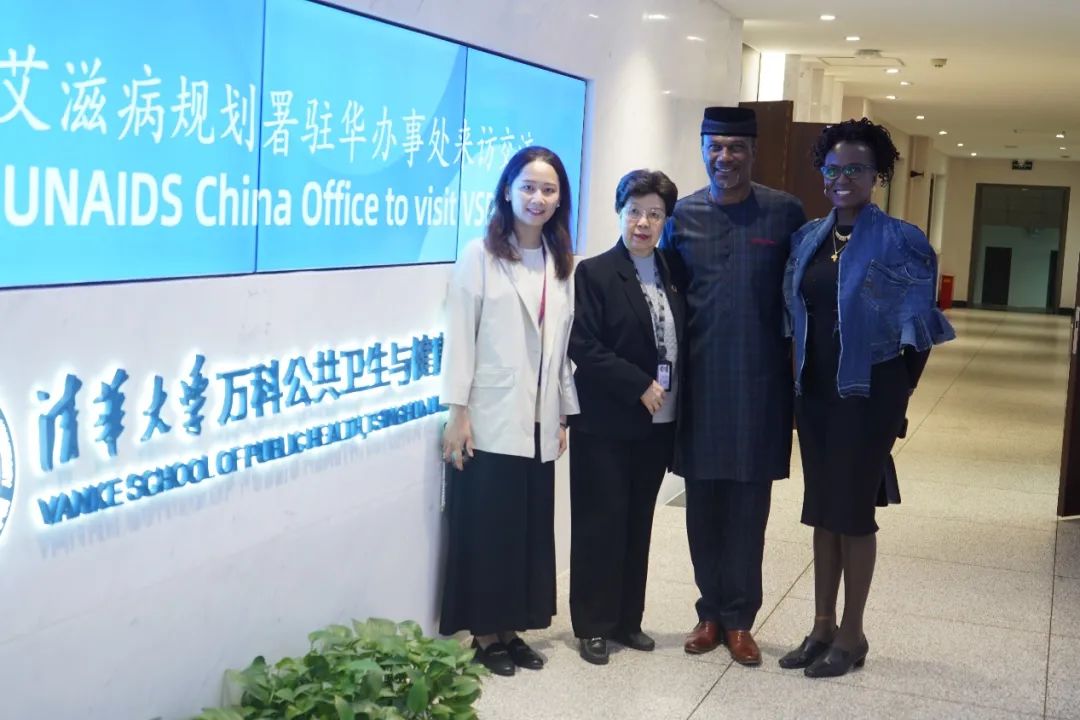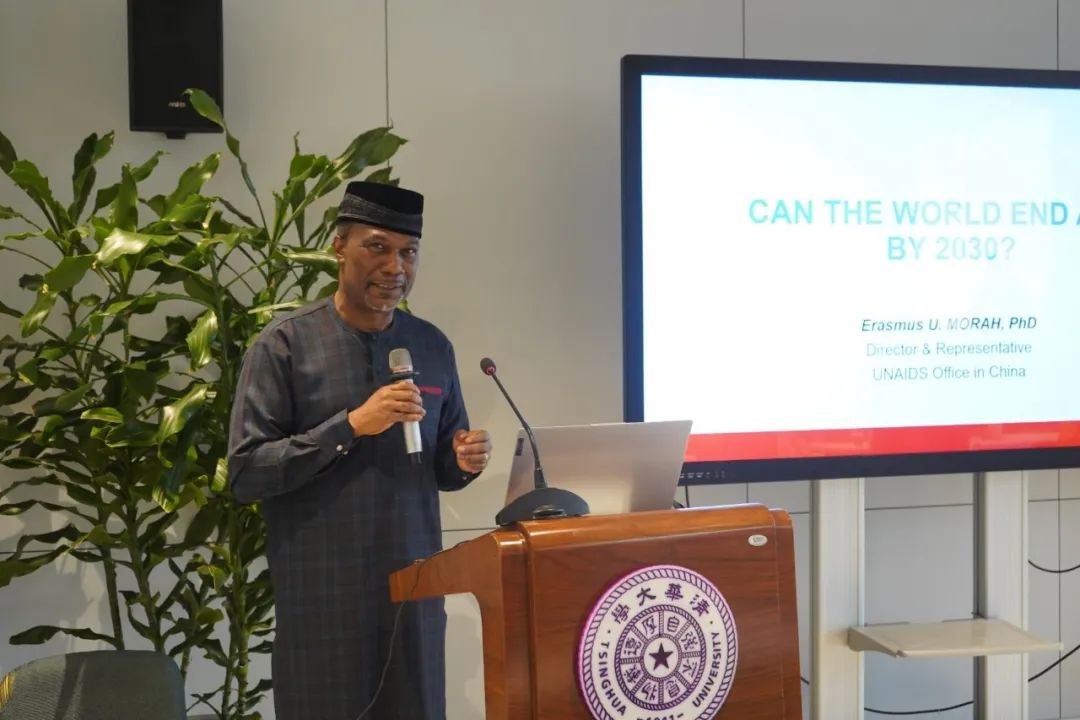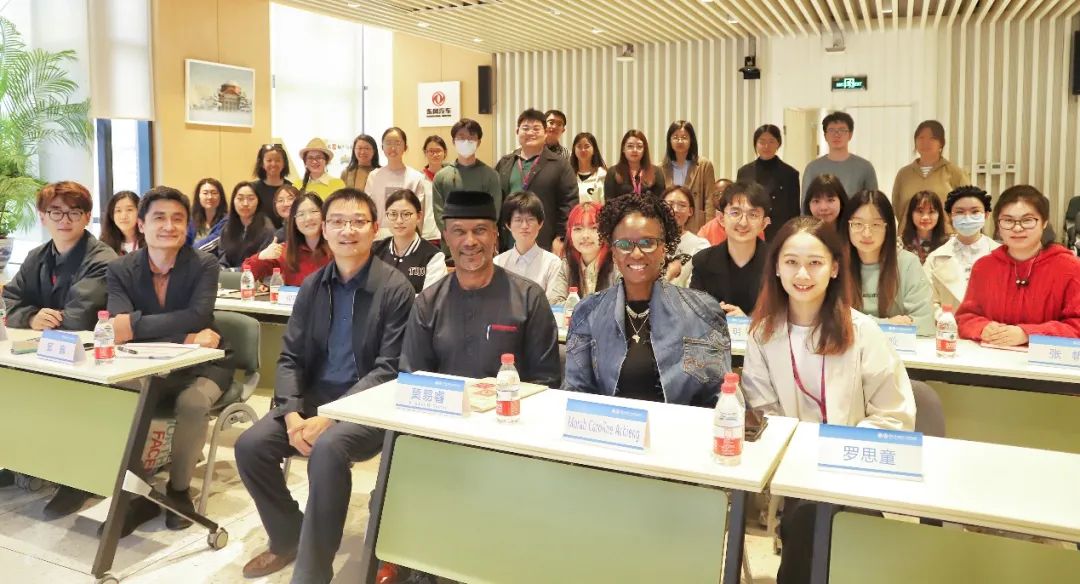A lecture on “Global Action and Progress to End AIDS and the Opportunities and Challenges Faced” was held at Tsinghua University Student Career Development Guidance Center on April 27th. The lecture was co-organized by VSPH, Tsinghua University Student Public Health and Health Association, and Tsinghua University Student Global Governance and International Organization Development Association. Dr. Erasmus Morah, Director of the China Office of the Joint United Nations Programme on HIV/AIDS (UNAIDS), visited VSPH and delivered a keynote speech. Guo Wei, Strategic and Information Advisor of the China Office of UNAIDS, Liu Jie, Community Support Officer, Wei Xiangnan, Communication Officer, Cai Kenan, Global Partnership Assistant and others attended the event. Luo Sitong, Assistant Professor of VSPH, chaired the event.

Prior to the lecture, Dr. Margaret Chan, Founding Dean of VSPH and Honorary Director-General of the World Health Organization, met with Dr. Morah and his wife. Dr. Chan welcomed Dr. Morah’s visit and expressed her expectation that this event would enable Tsinghua students to have a deeper understanding of the global AIDS epidemic and the actions of international organizations, so as to enhance their international vision and social responsibility. Luo Sitong, Assistant Professor and Special Research Fellow of VSPH, participated in the discussion.

The keynote lecture commenced with the history and origin of the HIV/AIDS epidemic. Dr. Morah introduced the global attitude towards this emerging infectious disease in the early stages of the AIDS epidemic and the United Nations’ response to AIDS. He explained in an easy-to-understand way the many efforts made by UNAIDS in leading initiatives, policy recommendations, monitoring and evaluation, community participation and resource coordination in the global response to AIDS. He mentioned that the world has made tremendous progress in the nearly 40 years of fighting AIDS.
In 2016, the United Nations issued a political declaration on “Ending AIDS by 2030”, proposing the specific goal is to achieve the "Three 95%". That is, 95% of infected individuals are aware of their infection status through testing, 95% of diagnosed infected individuals receive antiviral treatment, and 95% of individuals receiving antiviral treatment achieve viral suppression. Dr. Morah said that addressing inequality in AIDS will be one of the keys to ending AIDS globally. He pointed out that paying attention to minority groups that have not reached the goal may be more important than 95% figure.
Based on the global situation of HIV/AIDS, on the question of “whether AIDS can be ended by 2030”, Dr. Morah said that AIDS can be well controlled when there are sufficient scientific treatments and prevention measures, as well as adequate resources and a good policy environment to actively implement AIDS prevention and control measures. However, the world still needs joint action and efforts to achieve this goal, such as taking preventive measures for key groups, wider and more targeted HIV testing, eliminating inequality, discrimination and stigma as much as possible, strengthening community participation, promoting innovation in treatment and prevention measures and sustainable funding input.
China has already achieved considerable achievements in responding to the AIDS epidemic. In addition to consolidating existing achievements and continuing to strengthen various measures domestically, China can also work with international organizations to make more efforts to promote global AIDS elimination by sharing China’s experience and achievements with the world. In this way, we can help solve inequality problems and achieve a community with a shared future for mankind.

During the interaction session, students exchanged views with the guests on issues such as the AIDS epidemic situation in Africa, how to carry out AIDS prevention and control work for key populations, the right to know and confidentiality of HIV-infected people, the role of sex education in AIDS prevention and control, and how to improve competence in international organizations.
Dr. Morah called for strong community action to end AIDS, paying attention to key groups and vulnerable groups, providing equal care and support for everyone. He concluded with the expectation that we start taking action in the communities around us to make efforts to reduce the AIDS epidemic and eliminate discrimination.